Read more about our first cohort.
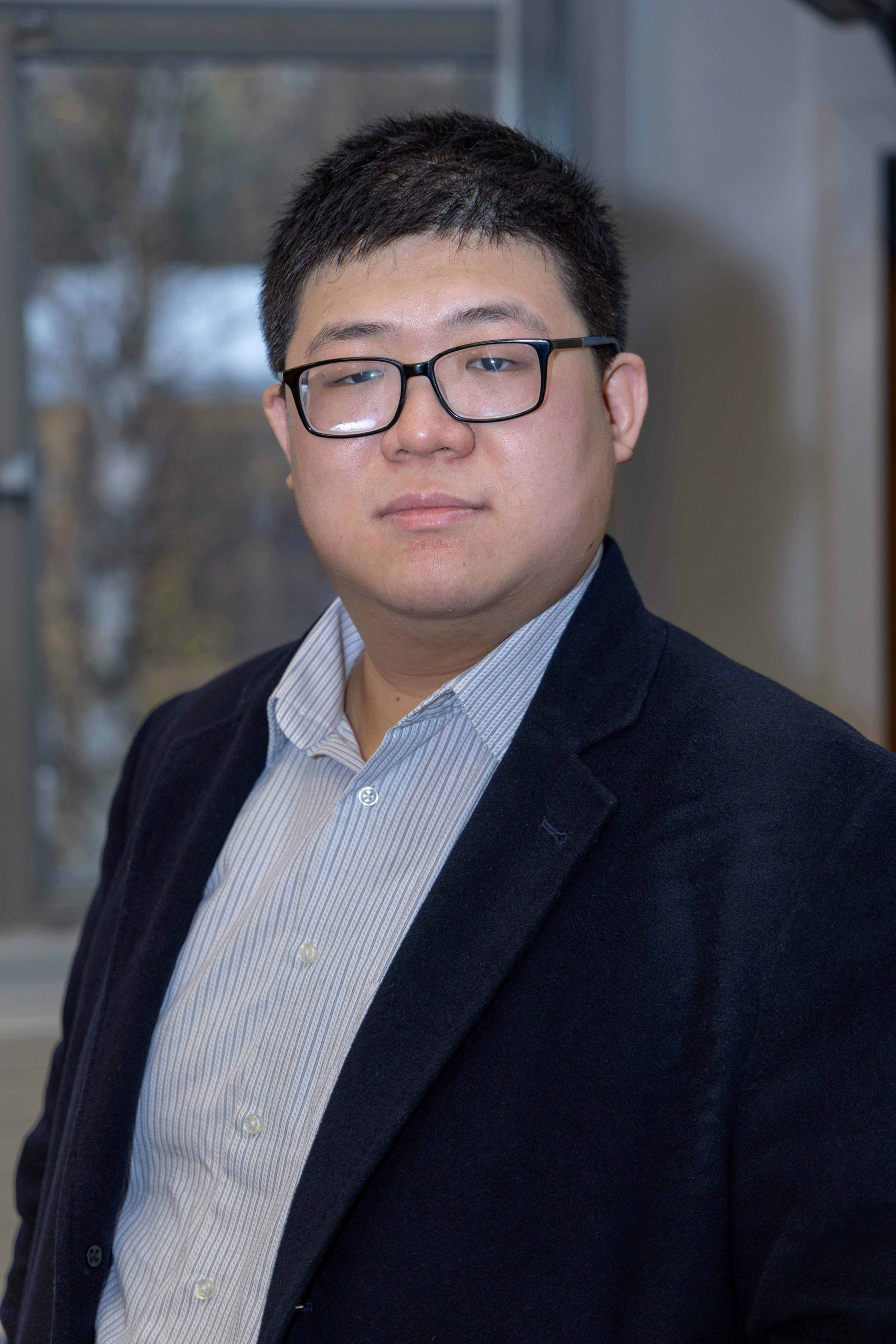
Efsion Andre
Efsion Andre is a PhD student at Imperial College London. His topic is related to Carbon Capture and Storage (CCS), especially in the storage sector. He uses machine learning methods to build proxy models for underground aquifer storage and depleted gas fields, which will later be used to optimise a whole CCS network. His supervisors are Professor Sevket Durucan, Professor Anna Korre, and Dr Ji-Quan Shi.
Efsion graduated from Institut Teknologi Bandung (ITB) cum laude with a Bachelor of Petroleum Engineering and Imperial College London with distinction for a Master of Sustainable Energy Futures. Before starting his master’s, he had worked for 5 years as a reservoir engineer in an oil and gas consultancy. A lot of his works were focused on underground reservoir modelling, simulations, and machine learning. He also worked as a research assistant at Imperial College London. Efsion presented a research paper entitled “A proxy model for saline aquifers characterised with a dome-structure capable of handling variable CO2 injection rates” at the 17th International Conference on Greenhouse Gas Control Technologies (GHGT-17) in Canada in 2024. Additionally, he presented at major conferences such as those organised by the Industrial Decarbonisation Research and Innovation Centre (IDRIC) and CO2GeoNet. He is currently contributing to the development of models for Aquifer Thermal Energy Storage (ATES) using the Finite Element Method (FEM) with multi-physics of solid mechanics, heat transfer, and Darcy’s flow using COMSOL software.
Efsion graduated from Institut Teknologi Bandung (ITB) cum laude with a Bachelor of Petroleum Engineering and Imperial College London with distinction for a Master of Sustainable Energy Futures. Before starting his master’s, he had worked for 5 years as a reservoir engineer in an oil and gas consultancy. A lot of his works were focused on underground reservoir modelling, simulations, and machine learning. He also worked as a research assistant at Imperial College London. Efsion presented a research paper entitled “A proxy model for saline aquifers characterised with a dome-structure capable of handling variable CO2 injection rates” at the 17th International Conference on Greenhouse Gas Control Technologies (GHGT-17) in Canada in 2024. Additionally, he presented at major conferences such as those organised by the Industrial Decarbonisation Research and Innovation Centre (IDRIC) and CO2GeoNet. He is currently contributing to the development of models for Aquifer Thermal Energy Storage (ATES) using the Finite Element Method (FEM) with multi-physics of solid mechanics, heat transfer, and Darcy’s flow using COMSOL software.
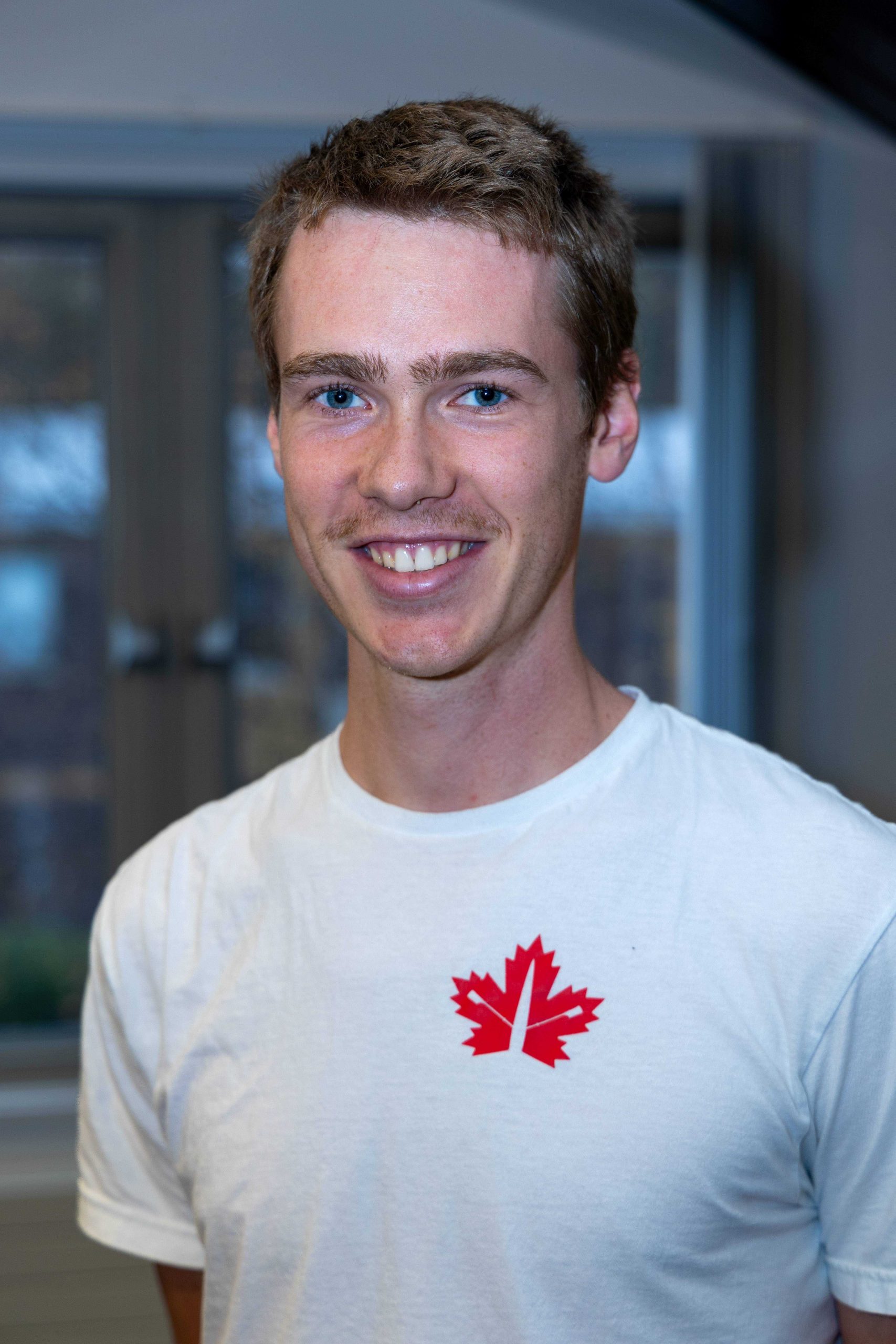
Julian Black
Julian Black is a PhD student studying at Imperial College London under the supervision of Dr. Qilei Song. Julian’s PhD project aims to develop high-performance bipolar membranes and explore their applications in energy processes.
Prior to starting his PhD, Julian completed his BASc in Chemical Engineering at the University of British Columbia where he performed research in CO2 electrolysis and sodium batteries. His research included developing an automated system for optimizing gas diffusion electrode catalyst layers for CO2 reduction, electrochemically characterizing enzyme constructs as catalysts for CO2 reduction, and designing battery cells for high throughput testing of sodium cells.
Prior to starting his PhD, Julian completed his BASc in Chemical Engineering at the University of British Columbia where he performed research in CO2 electrolysis and sodium batteries. His research included developing an automated system for optimizing gas diffusion electrode catalyst layers for CO2 reduction, electrochemically characterizing enzyme constructs as catalysts for CO2 reduction, and designing battery cells for high throughput testing of sodium cells.
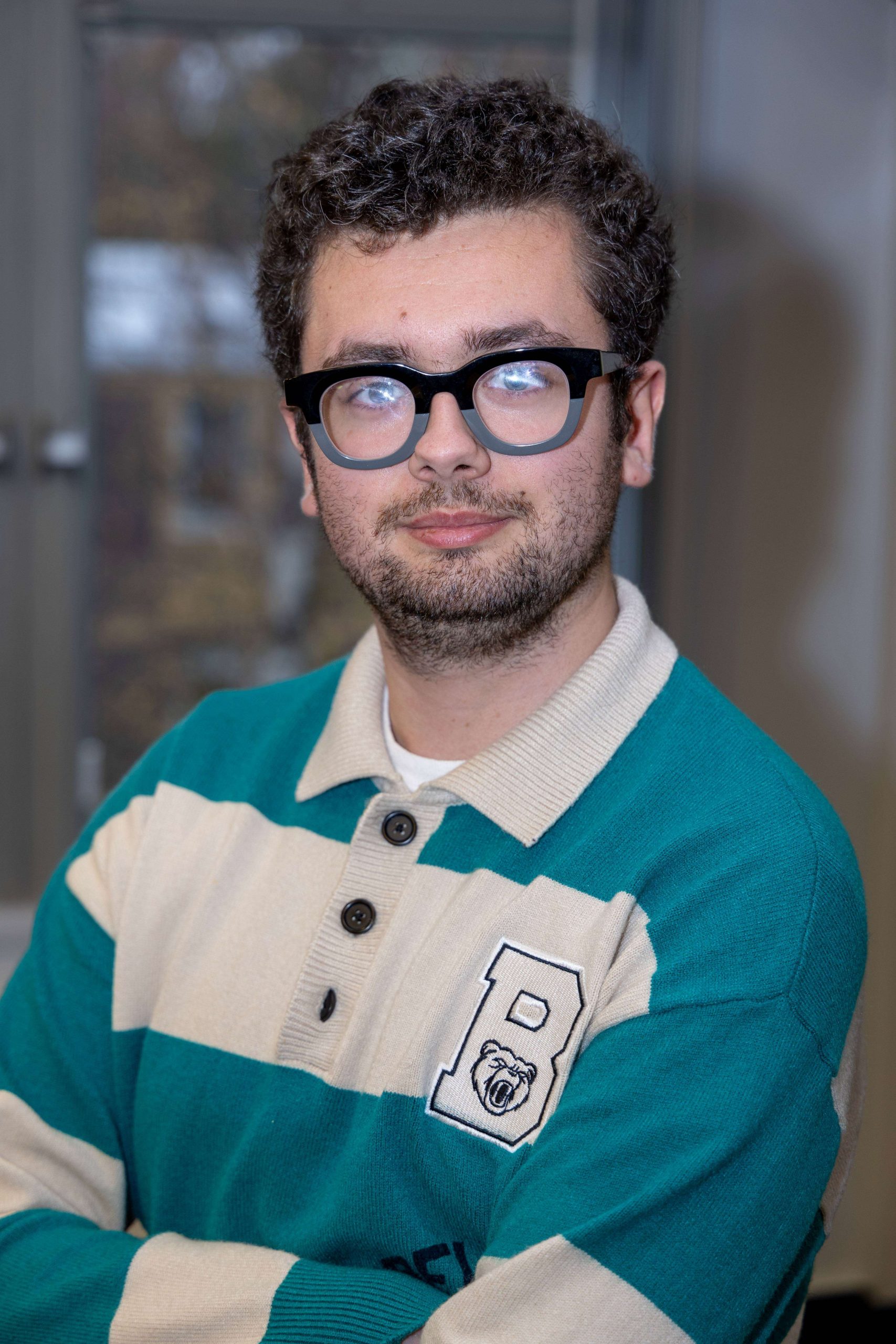
Michal Ciesielka
Michal Ciesielka is a PhD student studying at Heriot Watt University, Edinburgh. Michal’s PhD theme is hydrogen production designing electrocatalysts from non-raw critical materials to produce green hydrogen using wastewater, under the supervision of Dr. Sudhagar Pitchaimuthu, and secondary supervisor Prof. John Andresen.
Michal completed an MChem Chemistry degree (integrated master’s degree) at Northumbria University, Newcastle in 2023. Michal’s BSc dissertation was on the design of a drug to potentially treat Parkinson’s disease, based on 1,2-HOPO (a drug used for treating Parkison’s disease) and taking into the account the difficulties of the blood-brain-barrier. His master’s dissertation was on the development of a novel fluorophore based on ELF™ 97 (an existing detector) to be used to detect E.coli. Michal gained extensive first-time experience in the lab while developing these novel compounds, while also learning about the issues/theory about Parkinson’s disease and E.coli detection/infection.
Michal completed an MChem Chemistry degree (integrated master’s degree) at Northumbria University, Newcastle in 2023. Michal’s BSc dissertation was on the design of a drug to potentially treat Parkinson’s disease, based on 1,2-HOPO (a drug used for treating Parkison’s disease) and taking into the account the difficulties of the blood-brain-barrier. His master’s dissertation was on the development of a novel fluorophore based on ELF™ 97 (an existing detector) to be used to detect E.coli. Michal gained extensive first-time experience in the lab while developing these novel compounds, while also learning about the issues/theory about Parkinson’s disease and E.coli detection/infection.
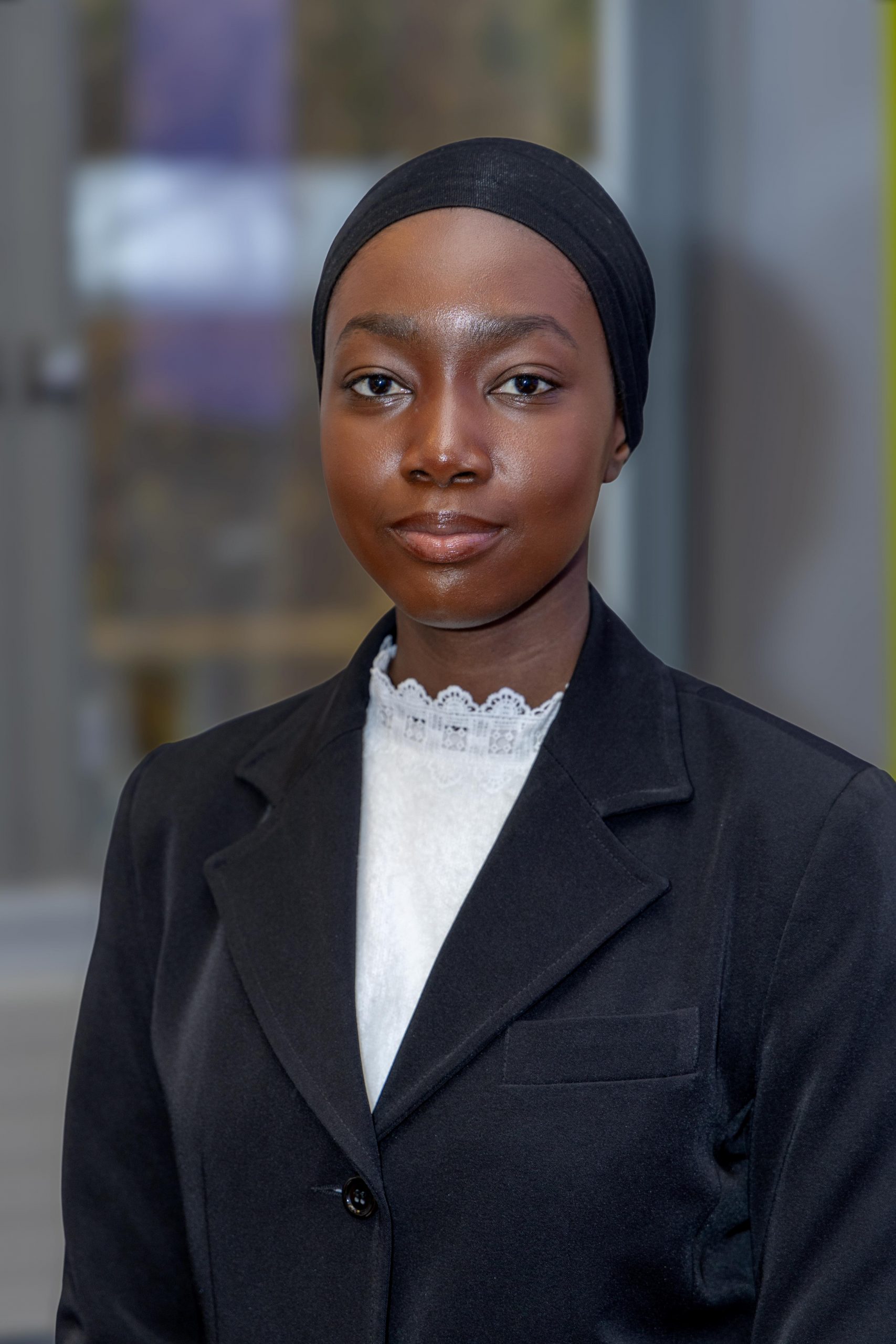
Jainaba Conteh
Jainaba Conteh is a PhD candidate at the University of Bath, specialising in Sustainable Fuel Infrastructure. Jainaba’s research focuses on creating a robust model to identify infrastructure requirements and optimal locations for deploying sustainable fuel infrastructure. Her work is conducted in collaboration with Centrica and under the supervision of Professor Marcelle McManus and Professor Linda Newnes.
Jainaba holds a BSc in Medical Biochemistry and an MSc by Research in Chemical Engineering, where she successfully developed a method to upcycle waste plastics from medical devices into carbon nanotubes using methods such as Scanning Electron Microscopy, Raman Spectroscopy, Thermogravimetric Analysis and Carbon Vapour Deposition Reactors. She gained additional laboratory experience as an intern at the Medical Research Council Unit in The Gambia (MRCG), where she performed manual DNA extraction, trained in using an automated QIAxtractor, and conducted PCR amplification of environmental and malarial DNA samples. As a Chemical Analyst, her meticulous approach to laboratory work emphasised health and safety, as she consistently adhered to SOPs, COSHH guidelines, risk assessments, and incident reporting procedures. Jainaba further enhanced her expertise by completing the Circular Economy Innovation Communities (CEIC) programme, equipping her with the knowledge and tools to address circular economy challenges effectively. In her role as a Policy Officer, Jainaba contributed to shaping policies on child poverty by developing strategic responses to Welsh Government consultations. Her commitment to social impact extended to housing support for refugee families, where she collaborated with Housing Options, the Bond Board, and Swansea Council to secure accommodations, streamline processes, and ensure families were housed efficiently and with dignity.
As Women’s Officer at Swansea University, Jainaba organised the Women in STEMM Conference, creating a platform for women from diverse backgrounds to share their experiences and discuss challenges in the field. She has actively engaged in youth-focused initiatives, including founding a Lego League club, and serves on the Equity in STEM board and as a trustee of the WCVA.
Jainaba holds a BSc in Medical Biochemistry and an MSc by Research in Chemical Engineering, where she successfully developed a method to upcycle waste plastics from medical devices into carbon nanotubes using methods such as Scanning Electron Microscopy, Raman Spectroscopy, Thermogravimetric Analysis and Carbon Vapour Deposition Reactors. She gained additional laboratory experience as an intern at the Medical Research Council Unit in The Gambia (MRCG), where she performed manual DNA extraction, trained in using an automated QIAxtractor, and conducted PCR amplification of environmental and malarial DNA samples. As a Chemical Analyst, her meticulous approach to laboratory work emphasised health and safety, as she consistently adhered to SOPs, COSHH guidelines, risk assessments, and incident reporting procedures. Jainaba further enhanced her expertise by completing the Circular Economy Innovation Communities (CEIC) programme, equipping her with the knowledge and tools to address circular economy challenges effectively. In her role as a Policy Officer, Jainaba contributed to shaping policies on child poverty by developing strategic responses to Welsh Government consultations. Her commitment to social impact extended to housing support for refugee families, where she collaborated with Housing Options, the Bond Board, and Swansea Council to secure accommodations, streamline processes, and ensure families were housed efficiently and with dignity.
As Women’s Officer at Swansea University, Jainaba organised the Women in STEMM Conference, creating a platform for women from diverse backgrounds to share their experiences and discuss challenges in the field. She has actively engaged in youth-focused initiatives, including founding a Lego League club, and serves on the Equity in STEM board and as a trustee of the WCVA.
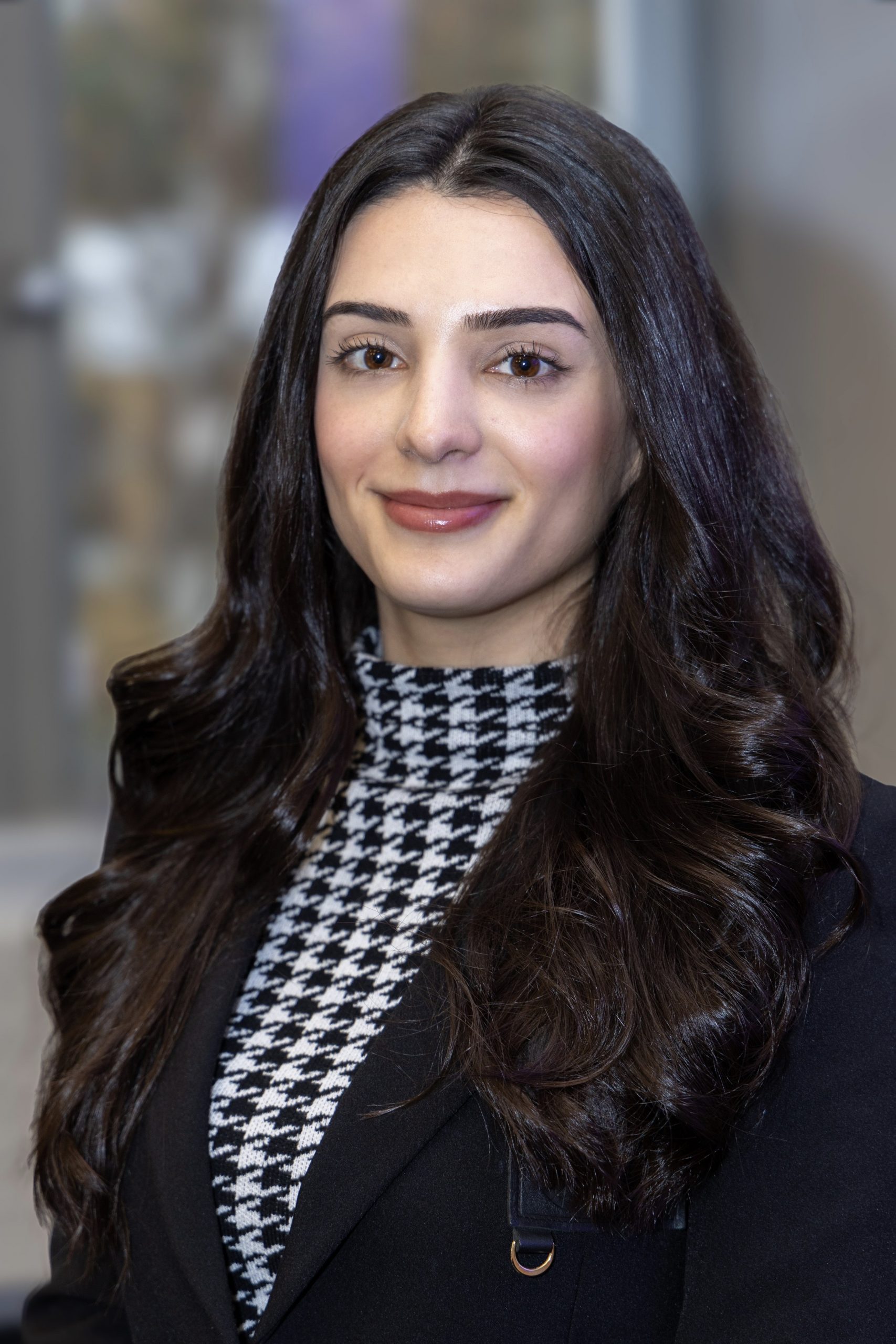
Iliana Dimitrova
Iliana is currently a PhD student at Imperial College London working in the Thermofluids Division (Mechanical Engineering Department) under the supervision of Professor Yannis Hardalupas and Professor Alex M.K.P. Taylor. Iliana’s industrial research investigates thermoacoustic instabilities in hydrogen gas turbines with additional efforts on prediction and suppression strategies, partnering with Siemens Energy.
Prior to her current position, Iliana earned her Master’s degree in mechanical engineering from King Abdullah University of Science and Technology (KAUST) in Saudi Arabia, where she was part of the Clean Combustion Research Center (CCRC) and the Computational Reacting Flow Laboratory (CRFL). Her research focused on high-fidelity direct numerical simulations of hydrogen ignition regimes and super-knock events in internal combustion engines. However, it was during her Bachelor’s degree in aircraft engineering at the University of the Highlands and Islands (UHI) in the UK that Iliana first delved into research. There, she conducted numerical studies on hydrogen/hydrogen peroxide blends for internal combustion engines, which culminated in her first peer-reviewed publication. In recognition of her efforts during her studies, Iliana was awarded the inaugural Sidney Black memorial engineering award, acknowledging her academic achievements and contributions to student life.
Prior to her current position, Iliana earned her Master’s degree in mechanical engineering from King Abdullah University of Science and Technology (KAUST) in Saudi Arabia, where she was part of the Clean Combustion Research Center (CCRC) and the Computational Reacting Flow Laboratory (CRFL). Her research focused on high-fidelity direct numerical simulations of hydrogen ignition regimes and super-knock events in internal combustion engines. However, it was during her Bachelor’s degree in aircraft engineering at the University of the Highlands and Islands (UHI) in the UK that Iliana first delved into research. There, she conducted numerical studies on hydrogen/hydrogen peroxide blends for internal combustion engines, which culminated in her first peer-reviewed publication. In recognition of her efforts during her studies, Iliana was awarded the inaugural Sidney Black memorial engineering award, acknowledging her academic achievements and contributions to student life.
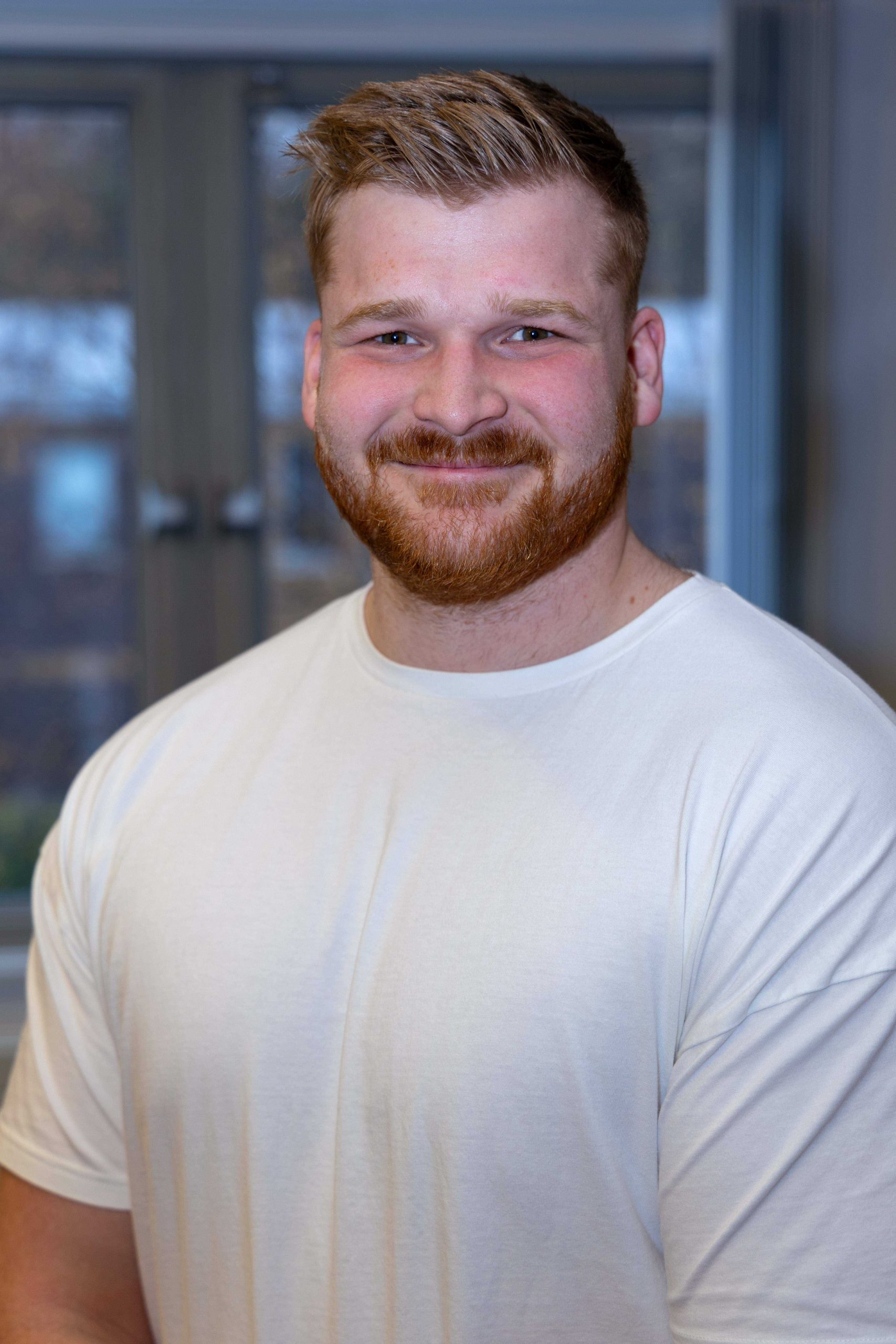
Thomas Gray
Tom is a SEEDS Sustainability Manager at CGI. The Sustainability Exploration and Environmental Data Science (SEEDS) programme is a ground-breaking initiative that harnesses the power of technology, research, and collaboration to drive positive environmental, economic, and social change, in partnership with leading UK & European universities and UNIDO. Additionally, Tom is a PhD student in Mechanical Engineering at the University of Bath, specialising on Understanding User Needs for the Adoption of Hydrogen Energy Products under the supervision of Dr Anna Chatzimichali.
Prior to his current position, Tom worked in renewable energy and fleet decarbonisation consultancy roles, supporting clients with both business and technical challenges. Before joining CGI, he spent 3 years as an Engineering Consultant, in the commercial vehicle sector, working with clients maintaining vehicles in the Agricultural, Aviation, Cargo, Construction, and Marine industries. Alongside this role, Tom completed an MSc in Entrepreneurship Management and Business Innovation at the University of Bath, with a thesis covering the transition towards sustainable fuel sources in the automotive and energy markets.
Prior to his current position, Tom worked in renewable energy and fleet decarbonisation consultancy roles, supporting clients with both business and technical challenges. Before joining CGI, he spent 3 years as an Engineering Consultant, in the commercial vehicle sector, working with clients maintaining vehicles in the Agricultural, Aviation, Cargo, Construction, and Marine industries. Alongside this role, Tom completed an MSc in Entrepreneurship Management and Business Innovation at the University of Bath, with a thesis covering the transition towards sustainable fuel sources in the automotive and energy markets.
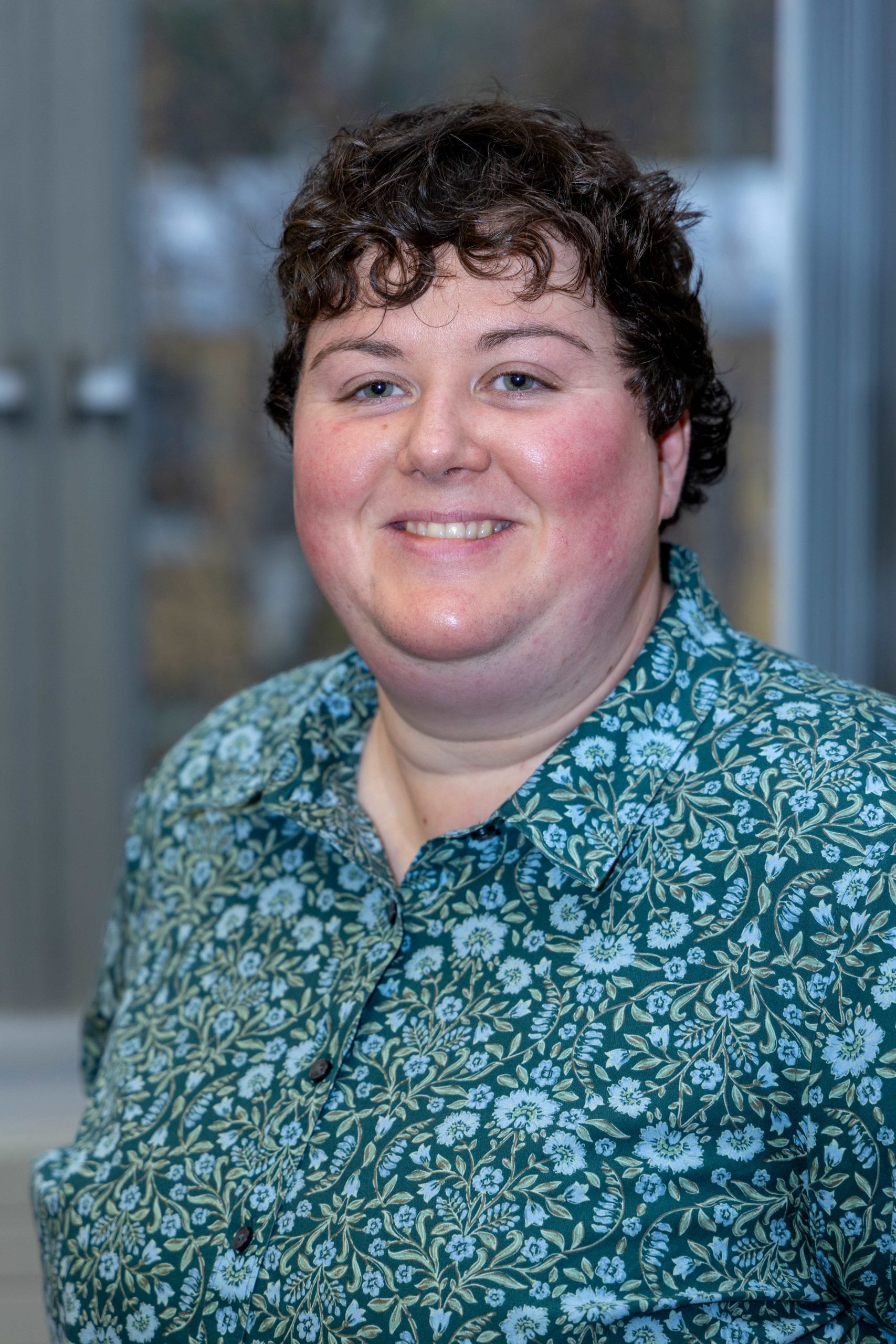
Kayleigh Hepburn
Kayleigh is a PhD student at the University of Bath. Kayleigh’s research is focused on the role of small and medium-sized enterprises (SMEs) in the net zero journey, supervised by Prof. Lorraine Whitmarsh and Dr. Sam Hampton.
Kayleigh has gained industry experience in various sectors, including professional services, consultancy, manufacturing, print and packaging and food & drink. She has a background in management systems and is a Chartered Quality Professional and member of the Chartered Quality Institute. Kayleigh’s recent career has predominantly been with the British Standards Institution (BSI) delivering management system certification audits, including ISO 14001 environmental management. Through this, she is aware of the focus on sustainability for leadership teams and the increasing requirements for carbon reporting.
Kayleigh completed her MSc in Operations and Business Management at Glasgow Caledonian University, and she also holds a BSc in Product Design and Innovation from the University of Strathclyde.
Kayleigh has gained industry experience in various sectors, including professional services, consultancy, manufacturing, print and packaging and food & drink. She has a background in management systems and is a Chartered Quality Professional and member of the Chartered Quality Institute. Kayleigh’s recent career has predominantly been with the British Standards Institution (BSI) delivering management system certification audits, including ISO 14001 environmental management. Through this, she is aware of the focus on sustainability for leadership teams and the increasing requirements for carbon reporting.
Kayleigh completed her MSc in Operations and Business Management at Glasgow Caledonian University, and she also holds a BSc in Product Design and Innovation from the University of Strathclyde.
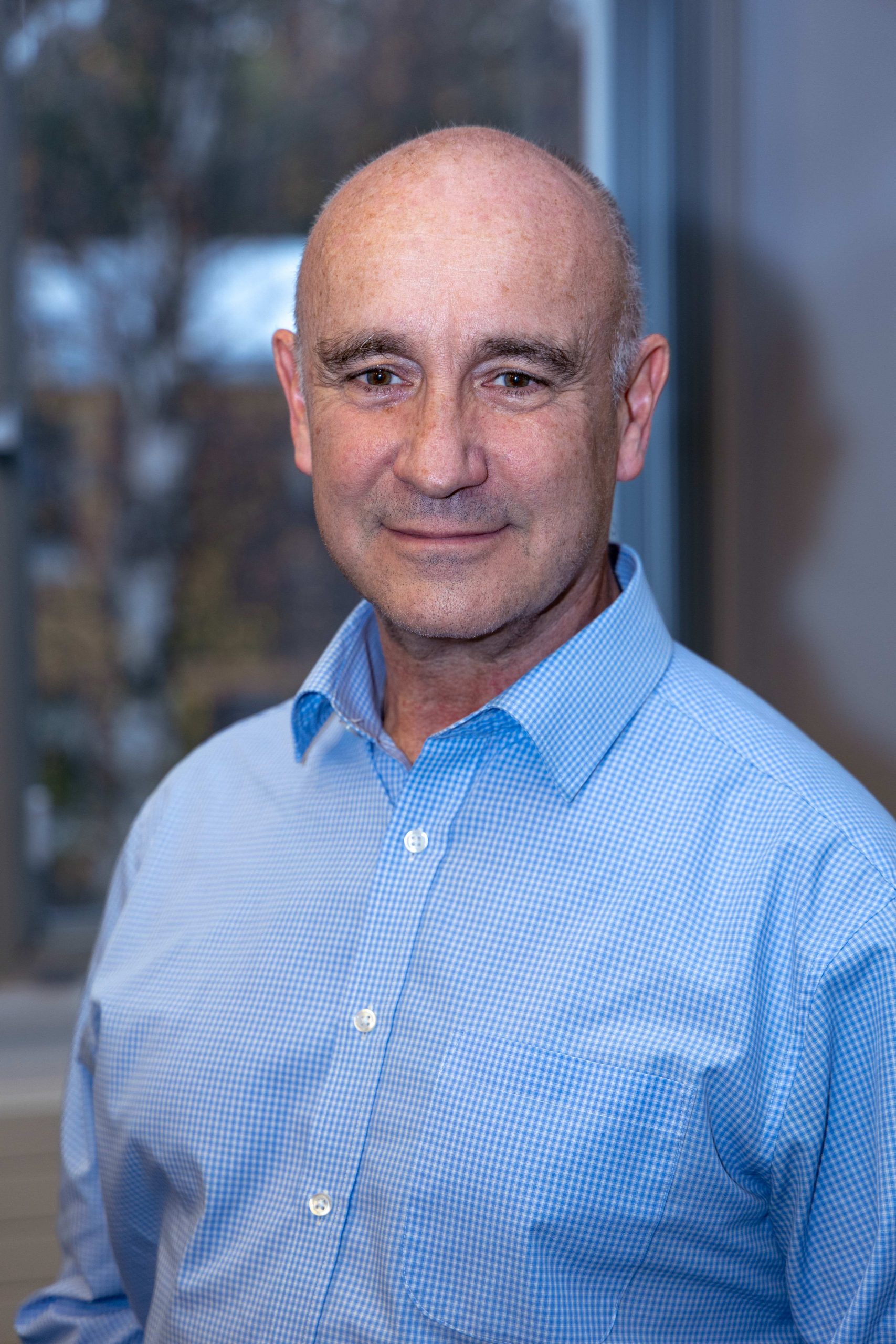
Michael Ownsworth
Michael is currently a PhD student at Sheffield University. His PhD is investigating, by long term testing, ways to manage and minimise amine breakdown in amine solvent based carbon capture systems. His supervisors are Professor Mathieu Lucquiaud and Professor John Gibbins.
The Green Industrial Futures CDT brings together PhD candidates from diverse backgrounds and skills with the shared intent of finding ways to Net Zero.
Michael is Chartered Engineer and Member of the Institute of Chemical Engineers. He has worked through out the process industries over nearly four decades in fields as diverse as food processing, metals and minerals, bulk inorganics, petrochemicals and fine chemicals. His work covered capital projects, process improvements and trouble shooting. The organisations he has worked in were consultancies, producing companies and equipment suppliers. He has also worked as an independent contractor.
The Green Industrial Futures CDT brings together PhD candidates from diverse backgrounds and skills with the shared intent of finding ways to Net Zero.
Michael is Chartered Engineer and Member of the Institute of Chemical Engineers. He has worked through out the process industries over nearly four decades in fields as diverse as food processing, metals and minerals, bulk inorganics, petrochemicals and fine chemicals. His work covered capital projects, process improvements and trouble shooting. The organisations he has worked in were consultancies, producing companies and equipment suppliers. He has also worked as an independent contractor.
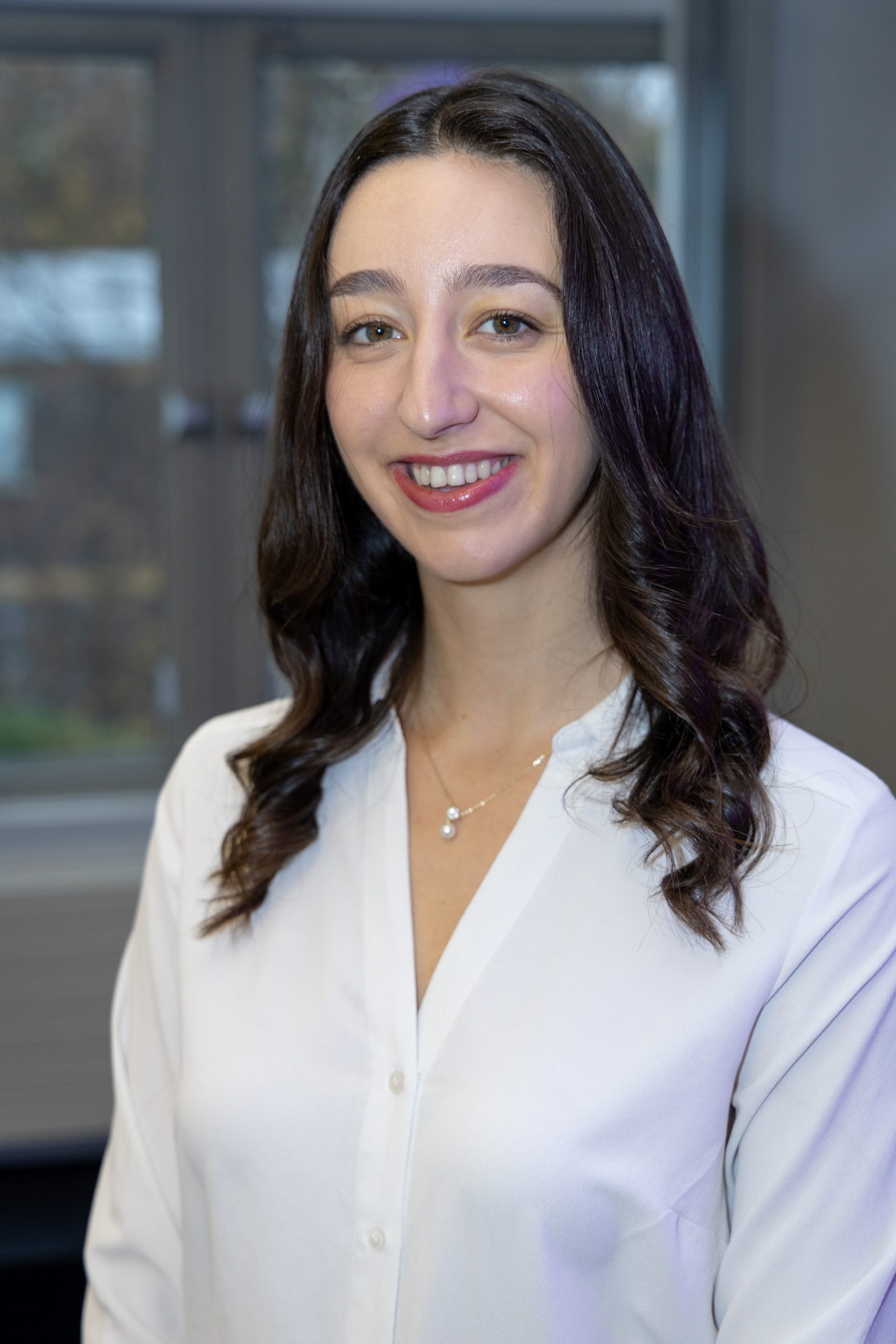
Antigoni Theocharidou
Antigoni Theocharidou is a PhD candidate at the Centre for Environmental Policy at Imperial College London, supervised by Professor Niall Mac Dowell. Her research focuses on integrating greenhouse gas removals (GGR) into the UK Emissions Trading Scheme (UK ETS), contributing to the development of balanced and effective climate policies. She holds an MSc in Finance and Accounting from Imperial College Business School, where she graduated with distinction, earning accolades such as the Dean’s List Award and the WCIB Prize for her work in sustainable business practices. Antigoni also holds a BSc in Accounting and Finance from the University of Bath, where she graduated in the top 2% of her cohort with First Class Honours.
Professionally, Antigoni combines academic research with practical expertise. She is a Research Assistant at Imperial College London, where she is designing methodologies for creating credits for low-carbon chemicals and evaluates climate policies affecting corporate behaviour. Antigoni has worked as a Data Analyst at SparkChange, analysing carbon price exposure and corporate sustainability strategies in high-emission industries. Her technical expertise spans data analysis, statistical modelling, and scenario planning, underpinned by programming proficiency in Python, R, and VBA. Antigoni has also contributed to publications on the financial implications of carbon pricing and its effects on industries like cement and steel in Asia and Europe, bridging the gap between finance and environmental policy. As a Teaching Assistant, Antigoni’s teaching portfolio spans executive MBA and master’s programs at Imperial, reflecting her expertise in climate finance and regulatory frameworks. With her multidisciplinary expertise and passion for sustainability, Antigoni continues to make impactful contributions at the intersection of climate policy, finance, and innovation.
Professionally, Antigoni combines academic research with practical expertise. She is a Research Assistant at Imperial College London, where she is designing methodologies for creating credits for low-carbon chemicals and evaluates climate policies affecting corporate behaviour. Antigoni has worked as a Data Analyst at SparkChange, analysing carbon price exposure and corporate sustainability strategies in high-emission industries. Her technical expertise spans data analysis, statistical modelling, and scenario planning, underpinned by programming proficiency in Python, R, and VBA. Antigoni has also contributed to publications on the financial implications of carbon pricing and its effects on industries like cement and steel in Asia and Europe, bridging the gap between finance and environmental policy. As a Teaching Assistant, Antigoni’s teaching portfolio spans executive MBA and master’s programs at Imperial, reflecting her expertise in climate finance and regulatory frameworks. With her multidisciplinary expertise and passion for sustainability, Antigoni continues to make impactful contributions at the intersection of climate policy, finance, and innovation.
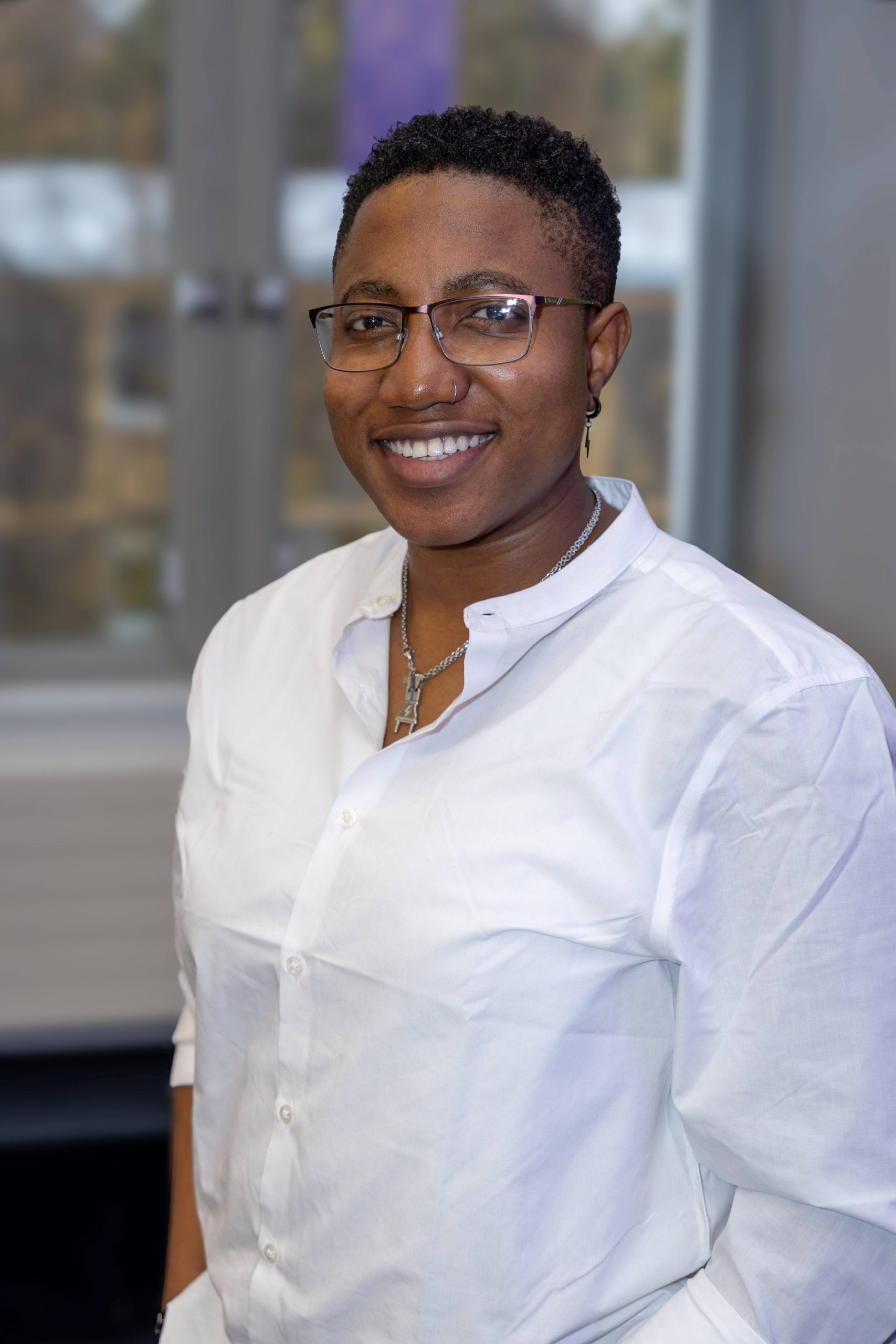
Gift Udoh
Gift Udoh is currently a PhD student at Heriot-Watt University. Gift’s research focuses on leveraging Digital Twin technology to revolutionise industrial decarbonisation, with a particular emphasis on harnessing hydrogen and low-carbon energy vectors. Guided by her supervisor, Prof. John Andresen, Gift is dedicated to optimising industrial operations through advanced digital simulations, paving the way for efficient, sustainable energy transitions.
Gift’s academic journey reflects a deep commitment to engineering and sustainability. She holds a bachelor’s degree in Food Engineering, where she honed expertise in process optimisation, system analysis, and solving complex technical challenges. Her passion for sustainable development propelled her to earn a Master’s degree in Global Sustainability Engineering. There, she gained proficiency in sustainable energy solutions, lifecycle analysis, and integrating eco-friendly practices into engineering systems. This solid foundation of technical acumen and sustainability insight uniquely positions her to address the multifaceted challenges of decarbonisation, blending cutting-edge digital technologies with actionable energy solutions.
Gift’s academic journey reflects a deep commitment to engineering and sustainability. She holds a bachelor’s degree in Food Engineering, where she honed expertise in process optimisation, system analysis, and solving complex technical challenges. Her passion for sustainable development propelled her to earn a Master’s degree in Global Sustainability Engineering. There, she gained proficiency in sustainable energy solutions, lifecycle analysis, and integrating eco-friendly practices into engineering systems. This solid foundation of technical acumen and sustainability insight uniquely positions her to address the multifaceted challenges of decarbonisation, blending cutting-edge digital technologies with actionable energy solutions.
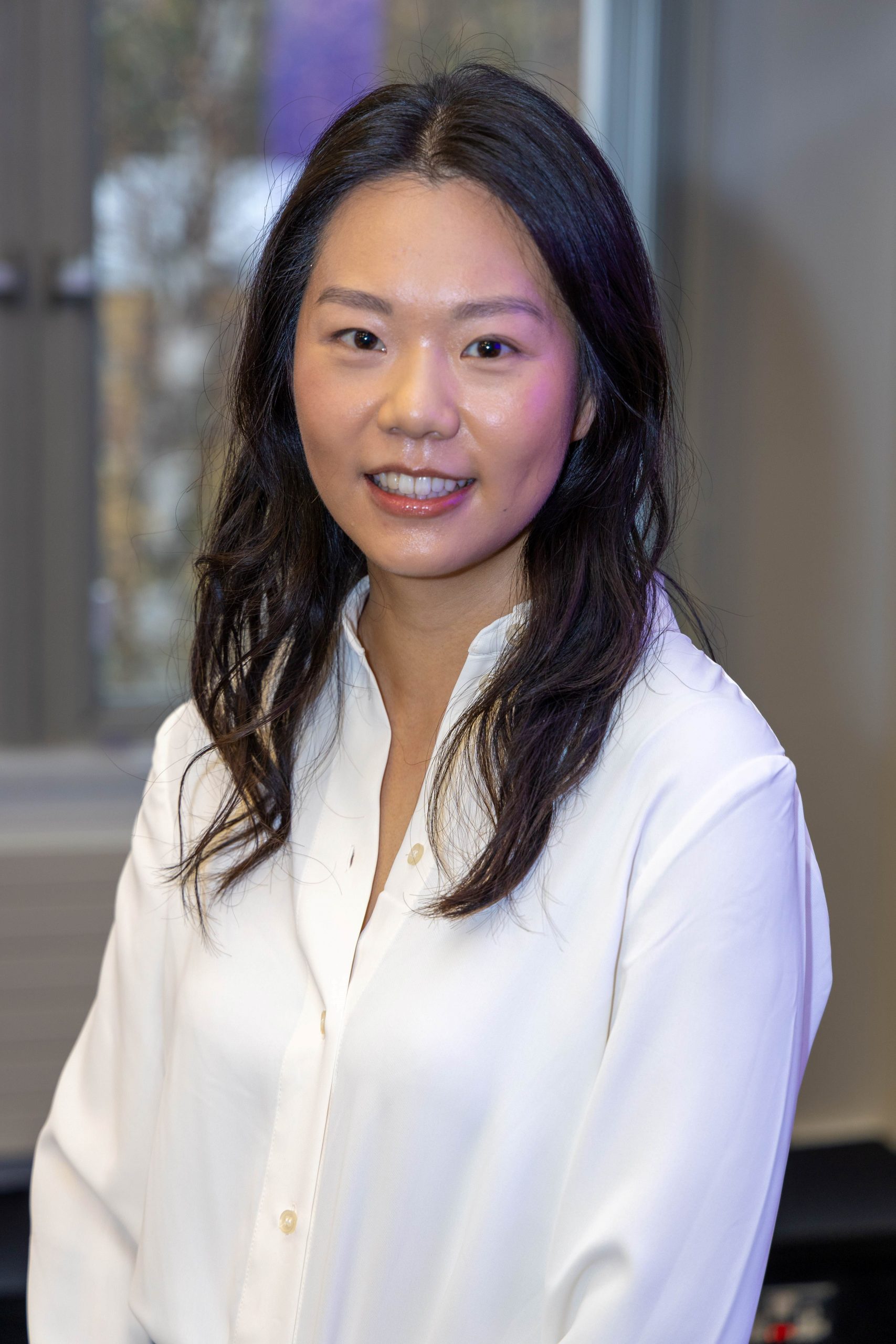
Lisa Zhang
Lisa Zhang is a PhD student at the University of Bath. Her PhD research focuses on engaging marginalised communities in net zero energy developments, investigating how to provide a more substantive role for such groups in decision-making about net zero. She is supervised by Dr Christina Demski and Prof Lorraine Whitmarsh.
Previously, Lisa was a Research Assistant at the UCL Centre for Behaviour Change, where she applied principles, methods and frameworks from the behavioural and social sciences to understand and change behaviours concerning health and sustainability. Her research aimed to achieve impact by translating scientific evidence to policy and practice. Lisa also worked in the Civil Service at the UK Health Security Agency, where she led behavioural science input to the Air Quality and Public Health group. Lisa has over 10 publications and has presented at international conferences. She previously earned an MSc in Behaviour Change from UCL in 2021.
Previously, Lisa was a Research Assistant at the UCL Centre for Behaviour Change, where she applied principles, methods and frameworks from the behavioural and social sciences to understand and change behaviours concerning health and sustainability. Her research aimed to achieve impact by translating scientific evidence to policy and practice. Lisa also worked in the Civil Service at the UK Health Security Agency, where she led behavioural science input to the Air Quality and Public Health group. Lisa has over 10 publications and has presented at international conferences. She previously earned an MSc in Behaviour Change from UCL in 2021.
